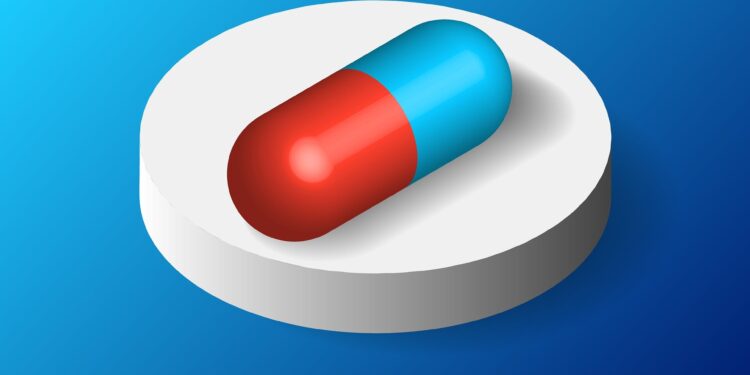Credit: Pixabay/CC0 Public domain
A team of medical researchers affiliated with British multinational pharmaceutical and biotechnology company GlaxoSmithKline (GSK) found that a new antibiotic drug developed by the company to treat urinary tract infections (UTIs) performed better than nitrofurantoin in two clinical trials.
In their article published in the journal The Lancet, the group describes aspects of two phase III non-inferiority clinical studies conducted to test the efficacy and safety of the drug gepotidacin compared to nitrofurantoin. The editors of The Lancet also published a commentary article in the same journal issue describing the team’s work on this new effort.
Urinary tract infections are the most common bacterial infections in humans worldwide and are therefore the most common target for antibacterial therapies. Previous research has shown that women are much more likely to contract such infections and that more than half of women worldwide will suffer from at least one infection in their lifetime. However, bacteria are becoming resistant and researchers are looking for new drugs to safely treat patients with UTIs.
As part of this new effort, the GSK team developed a drug called gepotidacin that has so far proven effective in treating patients with urinary tract infections with few negative side effects. In this final stage of development, the team tested their new drug in two phase III non-inferiority clinical studies against the drug nitrofurantoin with a view to making the drug commercially available.
The two clinical trials were called EAGLE-2 and EAGLE-3. Both involved testing of gepotidacin, and both were double-blind, double-dummy trials to test its use in uncomplicated UTIs in women. The studies were carried out in parallel to compare the results in two ways. In EAGLE-2, the focus was on learning about differences in effectiveness and safety based on age, while in EAGLE-3, the focus was on race.
Researchers found that gepotidacin was well tolerated by women of all ages and races. The most common negative side effect was mild diarrhea. They also found a high success rate: 50.6% for EAGLE-2 and 58.5% for EAGLE-3. The efficacy of gepotidacin was not inferior to that of nitrofurantoin in both trials, and it was superior in the EAGLE-3 study.
Gepotidacin has also been shown to be effective against common and resistant uropathogens such as P. mirabilis, E. coli and E. faecalis. Researchers conclude that gepotidacin is a potential new oral treatment for uncomplicated urinary tract infections in women.
More information:
Florian Wagenlehner et al, Oral gepotidacin versus nitrofurantoin in patients with uncomplicated urinary tract infection (EAGLE-2 and EAGLE-3): two randomized, controlled, double-blind, double-dummy, phase 3, non-inferiority trials , The Lancet (2024). DOI: 10.1016/S0140-6736(23)02196-7
Ased SM Ali et al, Gepotidacin, a new first-in-class antibiotic for the treatment of uncomplicated urinary tract infections, The Lancet (2024). DOI: 10.1016/S0140-6736(23)02697-1
© 2024 Science X Network
Quote: UTI drug gepotidacin works well in clinical trials compared to nitrofurantoin (February 13, 2024), retrieved February 13, 2024 from
This document is subject to copyright. Apart from fair use for private study or research purposes, no part may be reproduced without written permission. The content is provided for information only.



